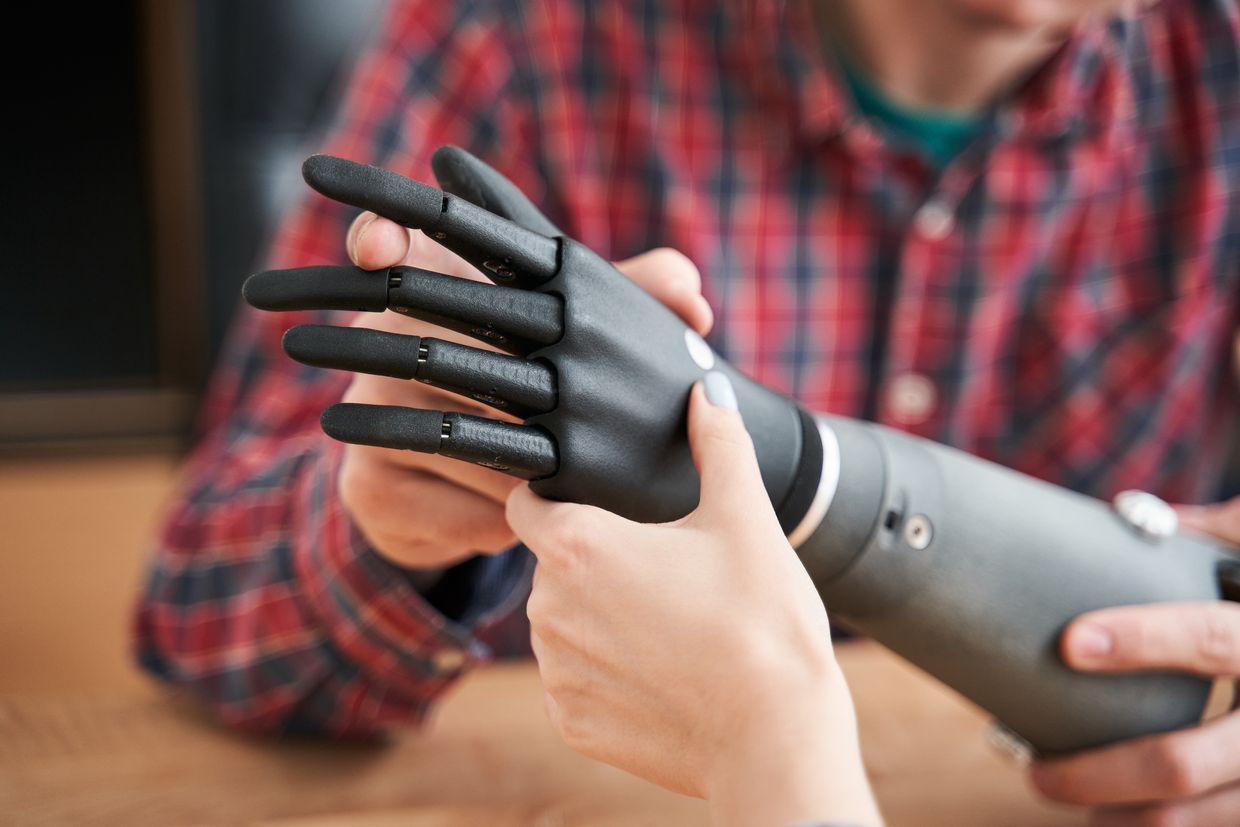Inspired by Ukraine's sunflowers, SolarGaps' is reimagining renewable energy
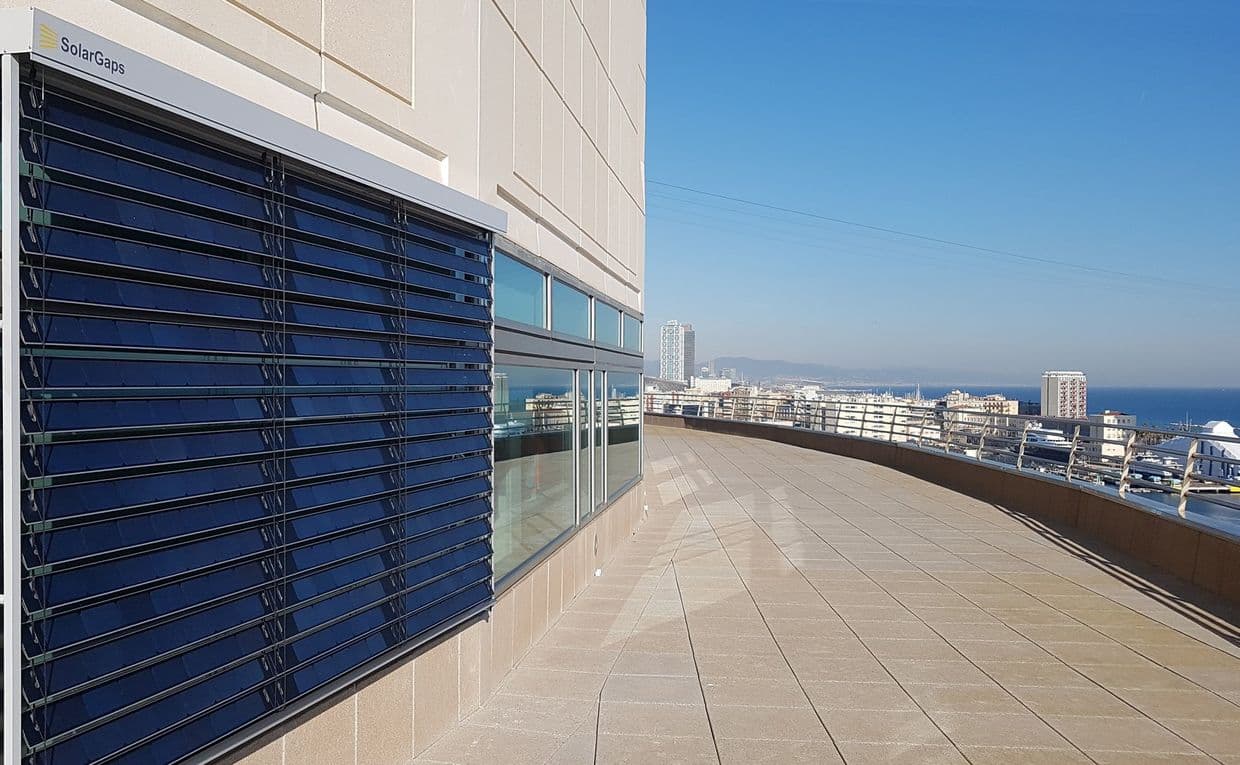
SolarGaps products installed in port of Barcelona, Spain. (SolarGaps/Facebook)
Editor’s note: This article is part of a series of profiles highlighting successful Ukrainian startups and businesses. The series is funded by the regional investment fund Ukraine-Moldova American Enterprise Fund (UMAEF) and created in partnership with Spend With Ukraine, a non-profit organization that launched a platform to showcase businesses with Ukrainian roots and provide one more meaningful way to support Ukraine – by choosing to spend with Ukraine. The series’ sponsors are not involved in the editorial process of the writing of these profiles.
A sunflower inspired Yevgen Erik to reinvent solar panels in his home country, Ukraine.
After realizing that the solar panels on his roof failed to cover his air conditioning costs during summer, he had an idea to create solar-powered blinds that would track the movement of the sun, like a sunflower, and provide shade to his home.
“We are losing so much energy through windows,” Erik told the Kyiv Independent from Spain, where he is currently based.
“I saw how we need to take something from nature and bring it to our homes.”
Erik took the idea to the IoT Hub, a tech startup accelerator in Kyiv, where he formed a team and launched SolarGaps in 2016. The Ukrainian-based company has since received $1.5 million in investments and $1 million in grants funded by the European Commission.
With thousands of SolarGap blinds installed globally, Erik sees a bright future for the company as the world rapidly turns towards renewable energy. The solar market is valued at $55 billion and he sees a serviceable available market of $2.5 billion for SolarGaps.
The blinds are simple to use and look much like normal venetian blinds, but made out of metal. The solar panels, like the ones installed on roofs, are fashioned into slats that automatically track the sun.
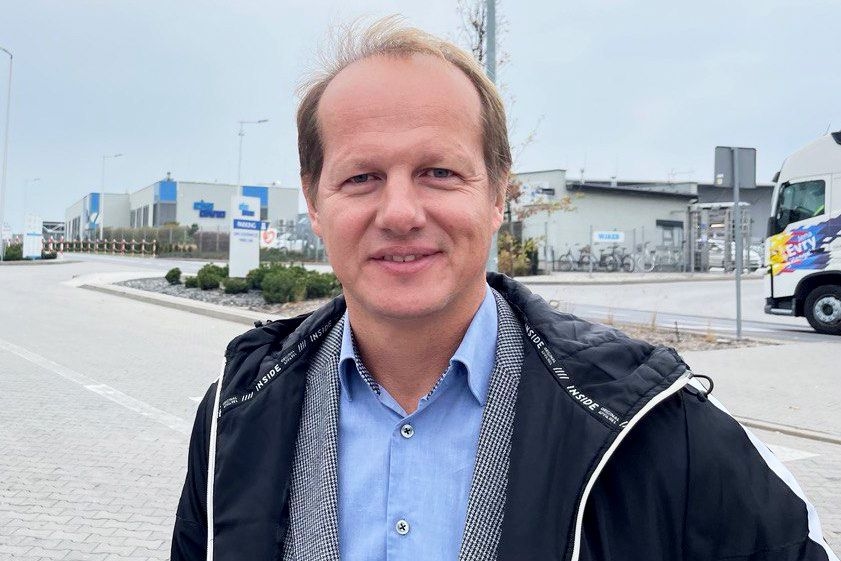
They're installed on the outside of the window and connect to an outlet. They can be operated via the app, remote control, or smart home system like Alexa and Google Home. By generating three to five kilowatts per day, the blinds reduce energy bills by 50 -70%, according to Erik.
“In some cases, it is a hundred percent, if they have a battery to store energy,” he said.
Erik could not have predicted how important his blinds would become for his war-torn homeland. Since Russia amped up attacks on Ukraine’s energy grids in May, Erik says hundreds of Ukrainians have turned to SolarGaps as a way to keep the lights on during long blackouts.
“Ukrainians want to survive. They connect SolarGaps to batteries and can live properly,” he said.
Made in Ukraine
Erik’s background in cybernetics and his experience working in real estate offered insight into how his product could be used to improve energy efficiency in buildings. While 80% of the world doesn’t have suitable roofs for solar panels, far more have windows that can install solar blinds, he noted.
He created a prototype at home before going to Kickstarter to garner funding. The campaign more than doubled its target, attracting over $102,000 from hundreds of people around the world.
“It gives us a chance to test our solution in different climate zones, like in Africa, in Canada, in Australia, and in Tokyo,” he said.
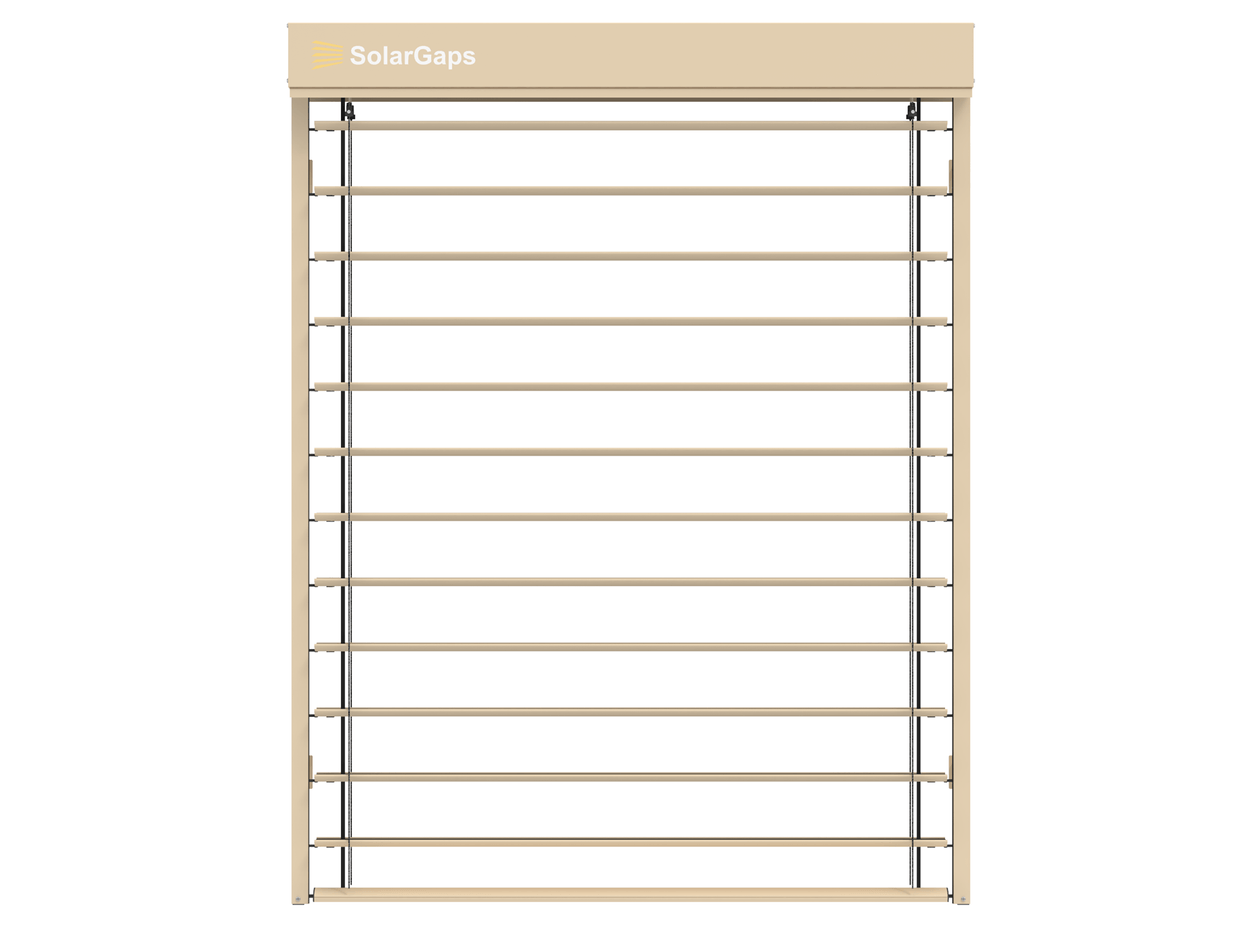
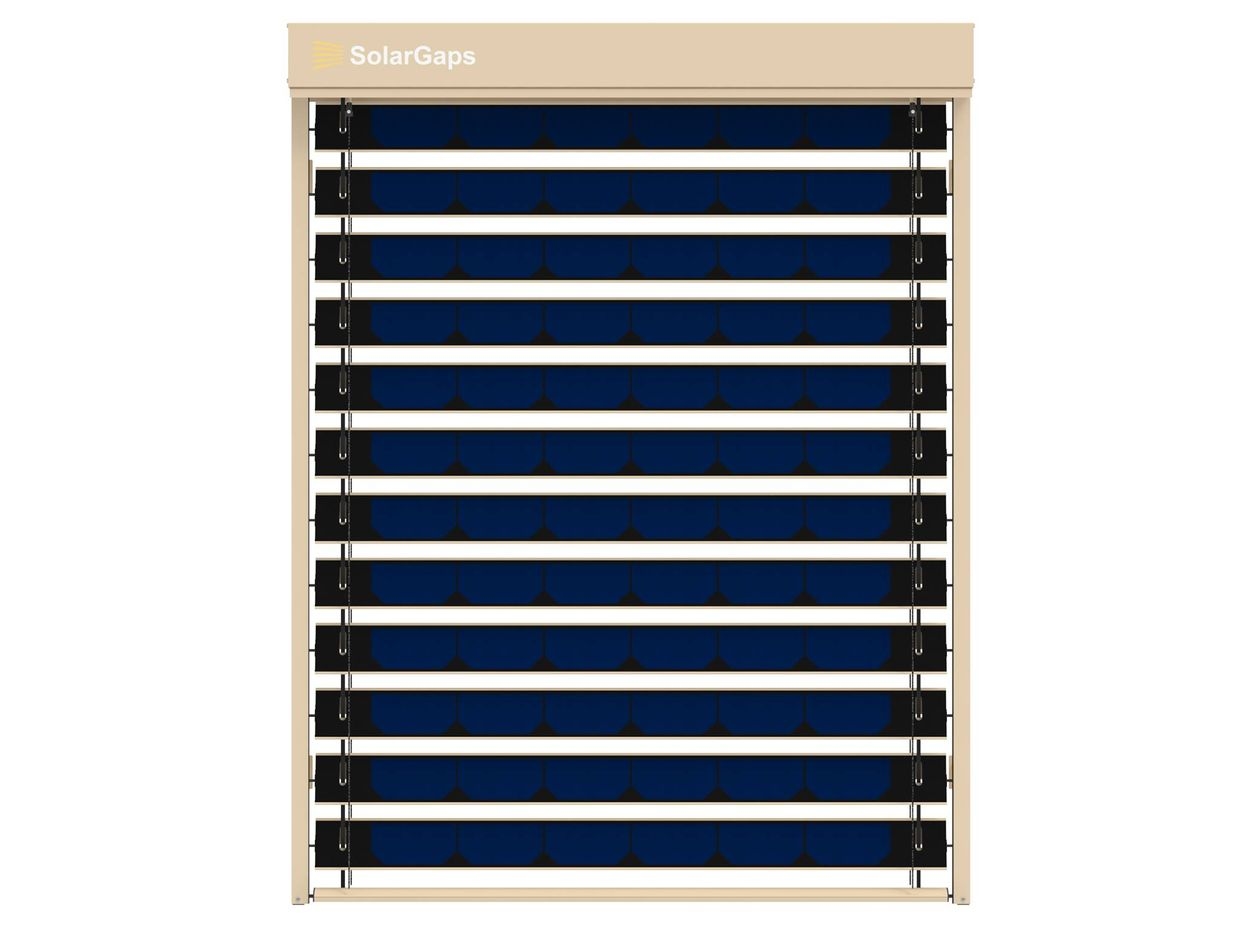
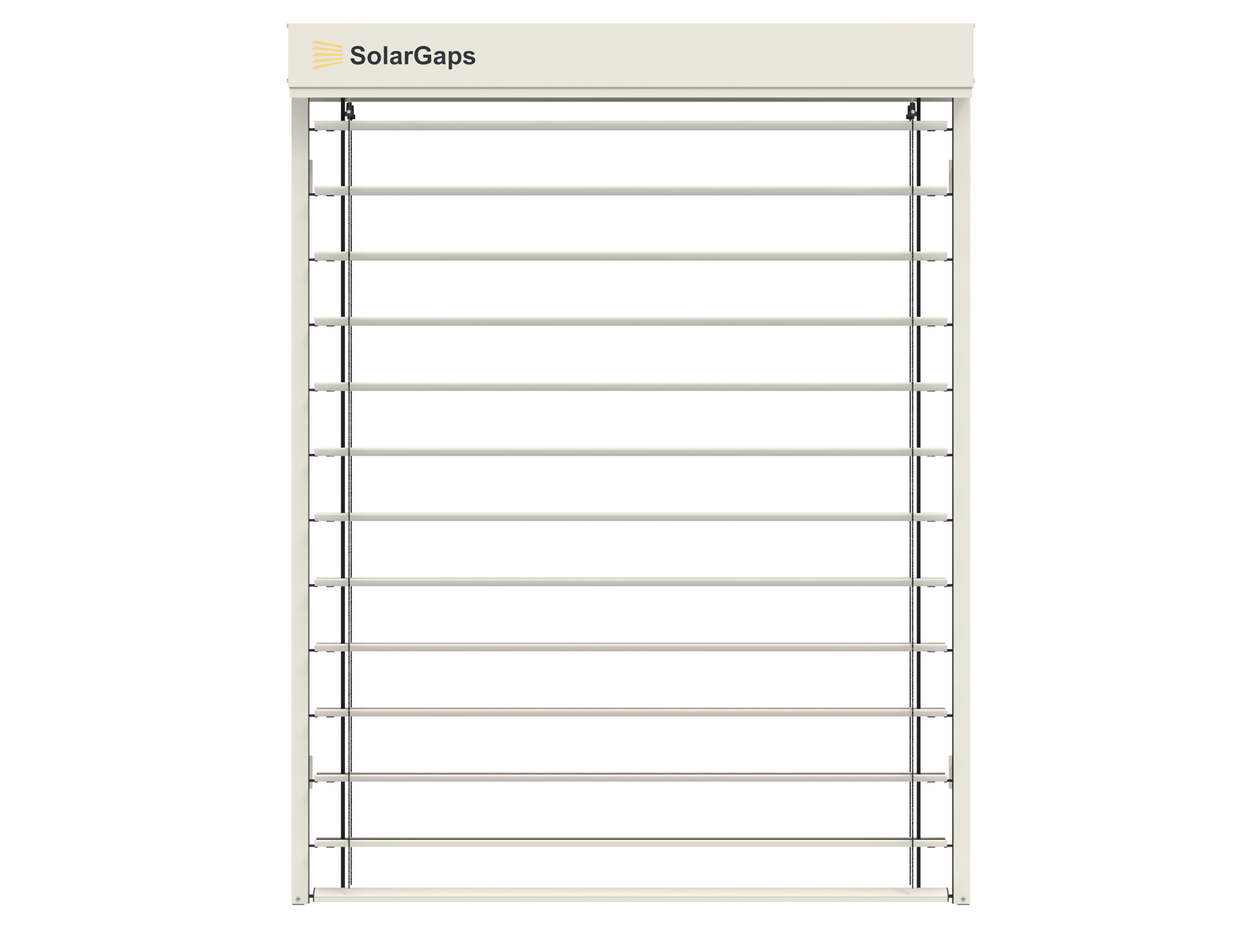
But Kickstarter was not enough to fuel Erik’s vision of building a global company. With the help of angel investors from Ukraine’s real estate sector and the U.S., the company raised around $600,000 in capital.
The funding would not have been sufficient if SolarGaps was based in the EU or the U.S. But it was possible in Ukraine where it is cheaper to launch a company. SolarGaps began producing its own electronics in Ukraine and still has a factory in Kyiv, with all Ukrainian employees.
With manufacturing ready, the company attracted the attention of the Singularity University in California. The university selected SolarGaps as part of its 2016 program to better the lives of 1 billion people in the areas of food, water, and energy.
Later the company applied for the EU’s Horizon 2020 program and won 1 million euros in funding over two and a half years. The support allowed Erik to expand his horizons and finalize the product for European customers.
Now, the company is on the fourth version of its blinds and 10th version of its electronic components. Erik notes that solar technology is becoming more efficient, allowing the company to improve its designs, such as solar-powered motors on its blinds.
The blinds are installed on the outside of buildings as this ensures maximum shading. Constructed with aluminum and carbon fiber, the blinds are weather resistant and even survived Storm Gloria in Spain in 2020. For good measure, Erik tests the blinds with an air gun.

Currently, the European market is the most dominant, particularly in Germany, Switzerland, and Italy, as countries become more energy-aware. Businesses make up the majority of the customer base and SolarGaps can make custom-sized products. The company sells to distributors who then install the blinds.
In the future, Erik hopes to open offices and scale production in Asia. Singapore is interested in SolarGaps, he notes, after the company exhibited at the Gastech conference in Singapore last year.
War and reconstruction
It has not been an easy ride for SolarGaps since the start of the full-scale invasion. Several employees who had worked at the company for six years moved to drone, rocket, and plane production and have little time to work for SolarGaps. Others joined the front-line fight against Russia.
The main team is currently around seven people spread across Ukraine, Europe, and the U.S. Even from his base in Spain, the war rarely leaves Erik’s mind and he helps contribute to the war effort by providing soldiers with solar panels and batteries so they have regular power.
At the same time, Erik had to reduce costs to the base level to keep the factory operating in Ukraine. The company is focused on developing its products and expanding rather than earning a large profit. Prices start at 400 euros per 10 square feet, with a 10-15% profit margin, earning around $200-300,000 in annual revenue.
“We try to scale and to do our best. But it's really hard now,” Erik said.
Nevertheless, SolarGaps has not stopped operations since the start of Russia’s invasion. The company carried out large projects in Canada and Switzerland, even in the early months of the war.
Recently, SolarGaps partnered with a German DIY company Hellweg to sell its products in 100 shops in the company’s first switch to brick and mortar stores. Everything will be produced in Ukraine.
But Erik knows that investors and partners are nervous about production in Ukraine. He is applying for another EU grant for $3 million to launch a factory in Poland and is currently in talks with a Spanish factory to manufacture blinds based on SolarGaps’ designs and patents, which the company received after eight years of innovation.
“We have a patent for innovation which will serve until 2040. So we have some time to scale,” Erik explained.
“We want to see strategic partnerships with energy companies who understand that they can scale to a broader audience of customers with energy products,” he added.
Erik is also eager to participate in Ukraine’s green reconstruction initiative. With much of Ukraine’s energy facilities damaged by the war, Kyiv has pledged to develop its renewable energy sector which will put the country on the same path as the EU.
The Ukrainian government said on Aug. 13 that it will need $20 billion in investments to boost its green energy capability, with plans for renewables to make up 27% of the country’s energy mix by 2030.
Erik has ambitious plans for SolarGaps in Ukraine and foresees apartment blocks installing solar blinds to generate energy. He believes that this can create a platform wherein neighbors will be able to share solar generated energy with each other, cutting costs and pollution.
“Our goal is to create an independent energy network in Ukraine, which will be created as an autonomous organ,” he said.
From combating blackouts to reducing energy bills by up to 70%, SolarGaps is reinventing the renewable sector worldwide. Visit Spend With Ukraine to find more businesses shaping a sustainable future — by supporting them with your purchases, you can fuel both innovation and resilience.



